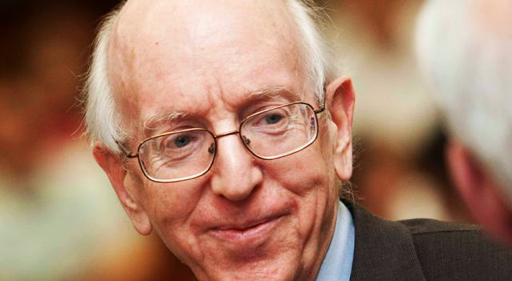Does Smoking A Lot of Cannabis Affect The Endo Cannabinoid System?
California Cannabis News, Medical Marijuana Info, Weed Entertainment and Pot Education
9/11/2012
Federal Judge Calls For Marijuana Legalization

Judge Richard A. Posner: "I think it's really absurd to be criminalizing possession or use or distribution of marijuana"
Most-Cited Judge In America Criticizes Drug War As 'Absurd'
A widely respected federal judge called for the legalization of marijuana in a lecture at Elmhurst College in Illinois on Thursday.
Judge Richard A. Posner of the influential Seventh U.S. Circuit Court of Appeals in Chicago "is an intellectual giant who is the most-cited judge in America," reports Larry Bodine at Lawyers.com. "His call for legalization is considered significant because Posner is considered a legal conservative," Bodine wrote.
"I don't think we should have a fraction of the drug laws that we have," Posner said. "I think it's really absurd to be criminalizing possession or use or distribution of marijuana. I can't see any difference between that and cigarettes."
The Elmhurst College audience applauded Judge Posner's remarks.
Posner, who was called a "genius" by Judge William J. Bauer by way of introducing him, has written hundreds of court opinions and 40 books. Entire classes at law schools are devoted to his legal rulings.
A Reagan appointee, he attended Yale College, was valedictorian of his class at Harvard Law School and started his career as a clerk for the U.S. Supreme Court.
Judge Posner said he was also skeptical about laws regarding other drugs besides cannabis.
"The notion of using the criminal law as the primary means of dealing with a problem of addiction, of misuse, of ingesting dangerous drugs -- I don't think that's sensible at all," Posner said.
According to Posner, drug laws are "responsible for a high percentage of our prisoners. And these punishments are often very, very severe. It's all very expensive."
Posner pointed out in 2010 that legalizing marijuana and other drugs would save federal, state and local governments an estimated $41.3 billion a year.
Posner has been criticized by stuffed-shirts for making his rulings look a bit like a graphic novel, using pictures of reggae icon Bob Marley, lions, ostriches and other images to underscore his opinions, according to The Nation. His tendency to use pictures -- often taken from the web -- to spice up his rulings is a rarity in a legal world where staid, dry documents are customary.
Judge Posner's entire speech can be viewed in the YouTube video below.
http://www.youtube.com/watch?v=AhBBV0aI7lM&list=PL14615B34D2AB9797&index=1&feature=plpp_video
9/10/2012
Marijuana Dispensary Sues Los Angeles Police Department
9/07/2012
Study: Non-Psychotropic Cannabinoid Determined Safe
Investigators at Kings College in London assessed the physiological and behavioral effects of CBD and THC versus placebo in 16 healthy volunteers in a randomized, double-blind, crossover trial.
Investigators reported that the oral administration of 10 mg of THC was associated with various physiological and behavioral effects - such as increased heart rate and sedation - whereas the oral administration of 600 mg of CBD was not.
They concluded, "There were no differences between CBD and placebo on any symptomatic, physiological variable. ... In healthy volunteers, THC has marked acute behavioral and physiological effects, whereas CBD has proven to be safe and well tolerated."
A previous review of the use of CBD in human subjects, published in the scientific journal Current Drug Safety last year, similarly concluded that the compound was safe, non-toxic, and well tolerated.
Separate investigations of CBD have documented the cannabinoid to possess a variety of therapeutic properties, including anti-inflammatory, anti-diabetic, anti-epileptic, anti-cancer, and bone-stimulating properties. In recent years, patients in states that allow for the use of cannabis therapy, particularly California, have expressed an interest in plant strains that contain uniquely high percentages of the compound.
Cannabidiol is presently classified under federal law as a schedule I prohibited substance. Such substances are required by law to possess "a high potential for abuse," "a lack of accepted safety ... under medical supervision," and "no currently accepted medical use in treatment in the United States."